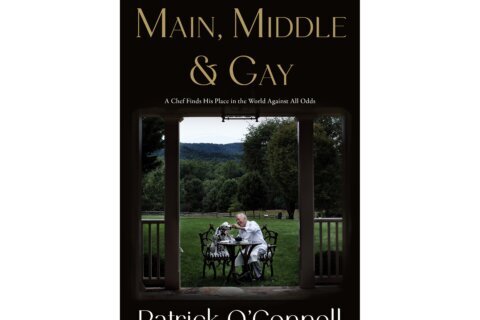A century before Black Lives Matter protests, the concept of light-skinned Black Americans “passing” as white provided an escape from Jim Crow-era injustices — but at what price?
That’s the subject of Rebecca Hall’s new Sundance-to-Netflix awards contender “Passing,” symbolically filmed in black-and-white to capture its black-and-white themes, but with plenty of shades of gray for complex characters ensnared in a Gatsby-style tragedy.
Based on a 1929 novel by Nella Larsen, a mixed-race author of Afro-Caribbean and Danish descent, the film is set during the Harlem Renaissance. It follows Irene Redfield, a Black woman living in Harlem with her Black doctor husband, who reconnects with her Black childhood friend, Clare, who “passes” as white to be married to a rich white man.
The success of the film hinges upon its two leads, who both deserve Oscar consideration.
Tessa Thompson has racked up quite the filmography: “Dear White People,” “Selma,” “Creed,” “Westworld,” “Thor: Ragnarok,” “Sorry to Bother You,” “Annihilation,” “Avengers: Endgame” and “Men in Black: International,” but it’s nice to see her slow it down for two romantic indies set in Harlem, first with “Sylvie’s Love” last year and now with “Passing.”
Her performance as Irene carries the film right from the opening scene, diverting her eyes and hiding her face under the brim of her hat, ashamed to be in her own Black skin when interacting with white retailers in downtown Manhattan. Her eyes show that she’s tempted by the notion of “passing” after reuniting with Clare — how different might her life be?
If there was any doubt that Ruth Negga deserved her Oscar nomination for “Loving” (2016), “Passing” puts it to bed. Her role recalls F. Scott Fitzgerald characters doomed by a dangerous daily decision to color outside of society’s lines, an understandable disguise when laws ban you from voting, but her suppressed identity manifests into craving.
She covets what she can’t have, flirting subversively with Irene and shamelessly with Irene’s husband Brian, played by André Holland of “Moonlight” (2016). We never know if he actually cheats, a credit to the ambiguous script, but it’s nice that he and Irene live in a Harlem brownstone rather than the slums, which would have been a cliche juxtaposition.
On the flip side, Clare’s husband is a racist white businessman played menacingly by Alexander Skarsgård, who was the abusive husband in “Big Little Lies” (2017). He’s the clear villain of the piece, regularly dropping the n-bomb around Irene, who is apparently light-skinned enough for him to think she’s “one of them.” His racial radar is terrible.
Far more likable and not so easily duped is wealthy socialite Hugh Wentworth, played by arguably the best character actor working in Hollywood today, Bill Camp, who memorably played the detective in HBO’s “The Night Of” and the janitor turned chess mentor in Netflix’s “The Queen’s Gambit.” Every second that he’s on screen here is a real treat.
Of course, all the casting in the world wouldn’t matter if the film wasn’t visually interesting. Enter Hall, known for her roles in “The Prestige,” “Frost/Nixon” and “Godzilla vs. Kong,” but who makes her directorial debut in “Passing,” one of the strongest first efforts in a while.
After the acclaim of Alfonso Cuaron’s “Roma” and David Fincher’s “Mank,” this year boasts a slew of Oscar contenders filmed in black-and-white: Wes Anderson’s “The French Dispatch,” Joel Coen’s “The Tragedy of Macbeth,” Mike Mills’ “C’mon, C’mon” and Kenneth Branagh’s “Belfast,” a crowd pleaser that has the best shot at winning Best Picture.
Still, of all of them, “Passing” best uses the technique because it’s not only a stylistic choice but also a symbolic one, where the visual aesthetic is actually married to the story’s theme. The look masks the true complexion of the actresses, enhancing their ability to believably “pass,” which would have been a harder sell if the movie were filmed in color.
Beyond the symbolism, the black-and-white palette by Spanish cinematographer Eduard Grau (“A Single Man”) brilliantly evokes the time period, combined with a jazzy piano score by Devonté Hynes (“Queen & Slim”) and spot-on hair, makeup and wardrobe that transport us to a different time and place. It’s an atmosphere we revel to live in for two hours.
When her camera is static, Hall delivers compelling compositions and symbolic mirror shots to show her characters’ divided nature. When her camera is moving, it works in concert with the theme as Thompson’s P.O.V. pans past Negga at the hotel restaurant, assuming she’s just another white face, then rapidly pans back in a “double take.”
It all builds to a shocking conclusion that can be interpreted two ways if you rewind to watch again, which is easy to do on Netflix, opening the window to additional layers. The film is picking up indie acclaim, earning five Gotham Awards, including Best Picture. Here’s hoping the Academy Awards follow suit as a chance to reward one of the best of 2021.









